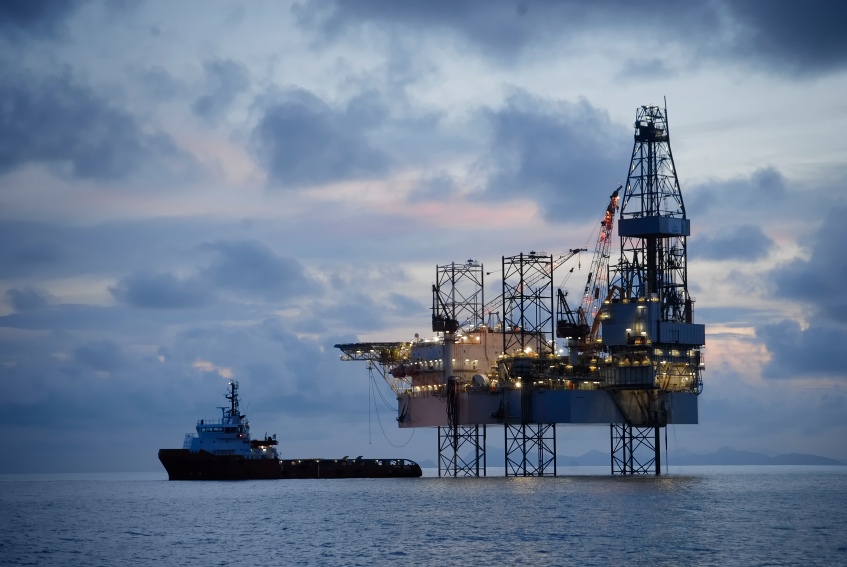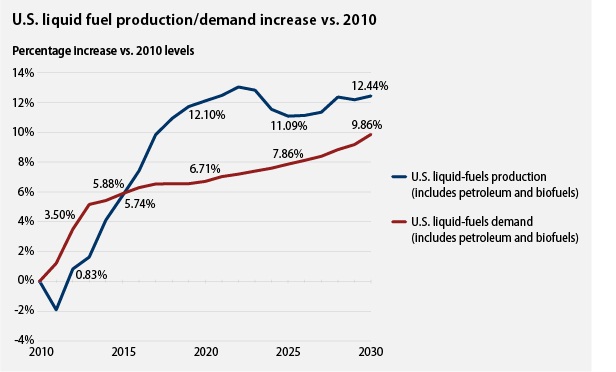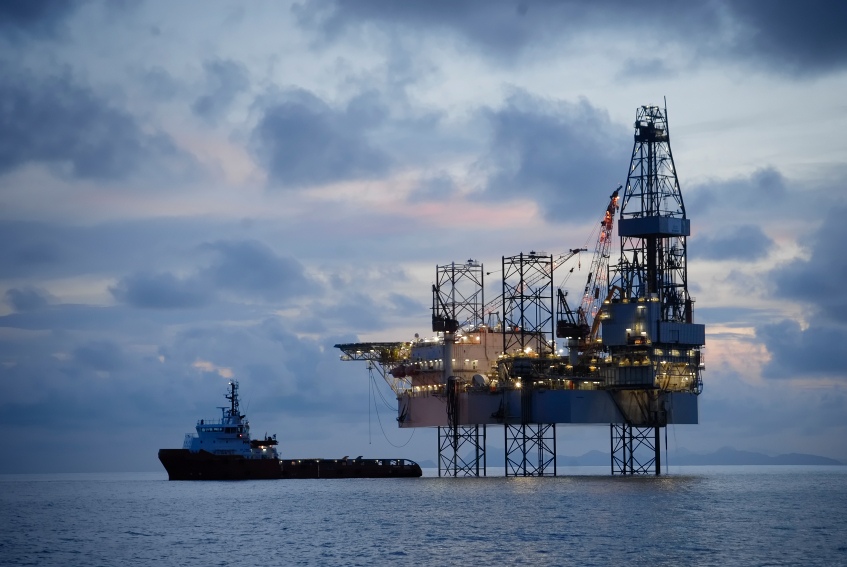 This article was cross-posted from the Center for American Progress. The original version was posted before the Gulf oil spill commission released its findings.
This article was cross-posted from the Center for American Progress. The original version was posted before the Gulf oil spill commission released its findings.
“Plus ça change, plus c’est la même chose.”
(The more things change, the more they stay the same.)
– Jean-Baptiste Alphonse Karr, 1849
Monsieur Karr’s 160-year-old epigram neatly captures the state of the American oil industry in 2011. Big Oil continues to lust after huge profits at the expense of the health and welfare of the American people. This reckless money chase occurs even though the production, combustion, and reliance on oil pollutes the water and air, and forces the United States to rely on oil from some unfriendly regimes.
Case in point: The leader of the American Petroleum Institute (API) rashly advocated a speedy return to expanded offshore oil drilling last week even though the National Commission on the BP Deepwater Horizon Oil Spill and Offshore Drilling will today issue its recommendations for additional safeguards for future offshore oil production.
Oil prices are steadily climbing toward $100 per barrel and Big Oil’s congressional allies are poised to use this price spike to reanimate the “drill, baby, drill” war cry to justify expanded drilling off our nation’s coasts without implementing safety measures to reduce prospects for another oil disaster. This rush to drill first, reform later, ignores projections that American oil production will increase nearly twice as fast as oil demand over the next 10 years. There is time to make sure future drilling is safer than pre-BP.
The American Petroleum Institute is the political arm of Big Oil. While ExxonMobil, BP, and other large oil companies run their warm and fuzzy clean energy ads on television, API wields brass knuckles behind closed congressional doors to get special treatment. API wants to drill in fragile, sensitive places, keep government tax breaks, expand offshore drilling without reforms, and block global warming pollution reduction requirements.
API President and CEO Jack Gerard delivered a “State of American Energy” speech on Jan. 4, 2011, that described this agenda. Incoming House Energy and Commerce Committee Chair Fred Upton (R-Mich.) paid fealty to Big Oil by sitting front and center in the audience. Gerard’s speech included Big Oil’s 2011 wish list. A central item is to expand oil production off of U.S. beaches without waiting for new federal safety standards that employ the recommendations of the commission. Many Big Oil allies in Congress will likely promote this agenda that benefits Big Oil as oil prices climb past $90 per barrel.
There are three major problems with these policies beyond their environmental concerns. First, expanded drilling can never address our imbalance between domestic oil production and consumption. The United States has only 2 percent of the world’s oil reserves, but it consumes more than 20 percent of the world’s oil. President Barack Obama noted last year that drilling expansion is not the solution to America’s energy challenges, explaining, “We have less than 2 percent of the world’s oil reserves; we consume more than 20 percent of the world’s oil. … drilling alone can’t come close to meeting our long-term energy needs.”
Second, an increase in U.S. oil production will make little or no difference in the world oil price or what Americans pay at the gas pump. Environment & Energy Daily recently reported that Ken Green, resident scholar with the conservative American Enterprise Institute, noted that crude oil is a global commodity whose price will be unaffected by an increase in U.S. production.
“The world price is the world price. Even if we were producing 100 percent of our oil,” Green said, if prices increase because of a shortage in China or India, “our price would go up to the same thing.” “We probably couldn’t produce enough to affect the world price of oil,” he added. “People don’t understand that.”
Nonetheless, Green expects some politicians to exploit higher oil prices to boost Big Oil’s claim on fragile lands and coastal waters. “We’re likely to see a replay of the McCain-Palin ‘drill, baby, drill,’ drill here, drill now. It will probably be a cause celebre for the tea party.”
Finally, this Big Oil coastal grab ignores several important Energy Information Administration (EIA) findings. One of these findings is that more than four out of five barrels of oil off the coasts in the lower 48 states are already available for development. EIA determined that “the OCS areas that were until recently under moratoria in the Atlantic, Pacific, and Eastern/Central Gulf of Mexico are estimated to hold roughly 20 percent (18 billion barrels) of the total OCS technically recoverable oil.” Most of the oil offshore can be developed now without risking oil blowouts off the Atlantic, Pacific, or Florida Gulf coasts.
The recent EIA Annual Energy Outlook 2011 also finds little need to hurry to begin drilling without precautions as API and its allies wish to do. It predicts that oil imports will “fall due to increased domestic production-including biofuels-and greater fuel efficiency.” This includes nearly a 20 percent reduction in imports from OPEC [table 146] nations from 2010 to 2020.
In fact, the
outlook estimates that the percentage increase in domestic liquid fuel production will be equal to the percent increase in oil demand between 2010 and 2015, and the percent increase in production will be twice as much as the percent increase of demand by 2020. (See chart below.) The EIA further assumes a delay in the expansion of offshore production. Its assumptions include “pushing out the start of production for a number of projects as a result of the six-month drilling moratoria, and delaying Atlantic and Pacific off shore leasing beyond 2017.”

The EIA data indicate that there is no need to launch panic drilling while ignoring the commission’s recommendations to improve safety procedures after the BP oil disaster. It is critical to note that commission ochair William K. Reilly believes that:
Given the documented failings of both Transocean and Halliburton, both of which serve the off shore industry in virtually every ocean, I reluctantly conclude we have a system-wide problem.
The commission’s investigation noted that actions by BP, Halliburton, and Transocean that increased the risk of the disaster saved these companies money, and reforms are essential to minimize the likelihood of future disasters.
Whether purposeful or not, many of the decisions that BP, Halliburton, and Transocean made that increased the risk of the Macondo blowout clearly saved those companies significant time (and money).
The blowout was not the product of a series of aberrational decisions made by rogue industry or government officials that could not have been anticipated or expected to occur again. Rather, the root causes are systemic and, absent significant reform in both industry practices and government policies, might well recur.
Domestic production will increase relative to demand, and U.S. imports from OPEC will decline. There also will be two rounds of improvements in fuel economy standards for model years 2012-2016 and 2017-2022. It makes little sense to begin expanded deepwater drilling that relies only on oil industry changes rather than waiting to implement the commission’s recommendations. Yet Gerard believes that the oil industry’s improvements determined before the cause of the BP disaster was known are adequate:
We immediately brought together industry experts from around the world and created task forces to identify ways we could enhance the focus on safety, even before we knew the cause of this disaster.
But we also cannot keep the industry on indefinite ‘hold’ while the regulatory process is improved.
The commission found that the BP oil disaster was due to “systemic” problems. Associated Press reports that the commission will find that API is wrong — that voluntary reforms are inadequate to protect the coastal economy and environment:
Despite reforms put in place since the massive BP oil spill, a presidential investigating panel has concluded that the government and the oil industry still haven’t done enough to avert another catastrophic accident offshore.
Instead of API’s rush to drill, the commission’s recommendations — to be released today — should be fully implemented and thoroughly enforced on existing rigs before new expansion begins. Politico reports that these recommendations could include lifting the oil spill liability limit, providing more resources for enforcement of safety measures, establishing an independent entity to set safety standards, and other new protections. Without such rules, we risk another multibillion-dollar Gulf Coast disaster that would further harm the local economy, push some coastal residents into poverty, and cause long-lasting economic and environmental damage.


